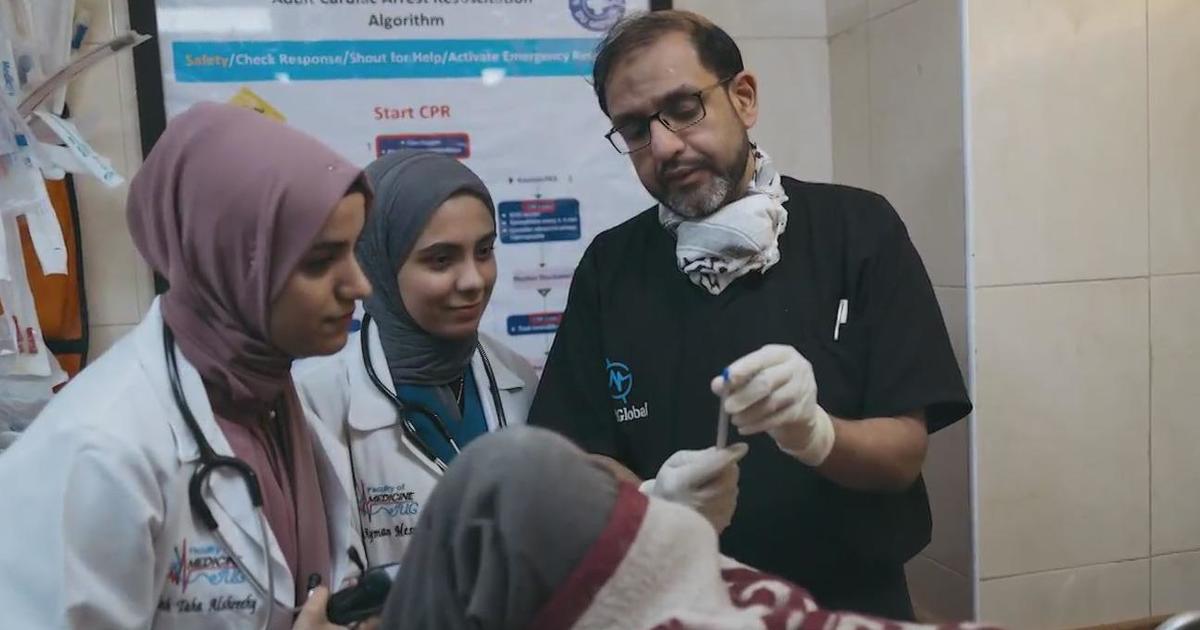Amid federal investigation into tainted IV bags, a look at how they work and why they're not tamper proof
DALLAS (CBSDFW.COM) - When federal investigators examined IV bags at Baylor Scott and White's Surgicare North Dallas facility, the Texas Medical Board reports they found tiny holes in the plastic wrap around the bags.
Inside them, lab tests found a drug called bupivacaine, commonly injected into the spine as an epidural during childbirth. When injected into the bloodstream, though, it's far more dangerous.
"Bupivacaine in the blood stream is a very dangerous drug and it is well known to cause cardiac arrest," explained Dr. Michael Champeau, president elect of the American Society of Anesthesiologists. "And so, it's hard for me to imagine any situation where you would ever put bupivacaine into any bag of fluid that was intended to be given intravenously."
With an investigation involving the U.S. Department of Justice, the U.S. Food and Drug Administration, and the Dallas Police Department seeking to uncover who may have tampered with the -- how and why -- CBS 11 asked Dr. Champeau to shed light on their use.
The bags, when stored and ready for use, he said, should contain nothing but what's essentially a saline solution. The fluids themselves are harmless, and unlike other items in a hospital, like narcotics, he said, the bags aren't kept under lock and key.
"They're generally stored in these warm cabinets where anyone who's in the operating suite would have access to them."
It's rarely doctors, Champeau explained, stocking those cabinets, which serve as low grade ovens warming IV fluids from room temperature to body temperature for the comfort of patients.
An order released by the Texas Medical Board Friday temporarily suspending the medical license of Dr. Ray Ortiz reveals surveillance footage shows him depositing IV bags into the warmer, one at a time.
Some time after, the order notes, a patient at the facility, would suffer a heart complication.
Ortiz wasn't charged with any offense in connection to the investigation, and over the phone Friday, he denied wrongdoing.
"I didn't do it, ma'am," he said.
He and his attorney have not responded to efforts to contact him again.
The tainted bags were linked to the death of Ortiz's colleague Dr. Melanie Kaspar, who the Texas Medical Board reports suffered a serious cardiac event after she took a "tampered IV bag" home to treat her own dehydration.
The Dallas County Medical Examiner's autopsy report, the board wrote, concluded her death was caused by "accidental bupivacaine toxicity."
Champeau said, there's no reasonable explanation for the presence of bupivacaine, or any drug, in the bag.
"No medication should ever be added to the IV bag until it has been designated for use for a particular patient. You would never have bags stored with medication in them," he said.
It could be hard to recognize, though, he said, if someone had tampered with an IV bag.
Each IV bag, he explained, is packaged inside a larger plastic bag, which he describes as flimsy and capable of being torn open and tossed away.
"It would be possible to tamper with that and have it be largely undetected," he said. "It would be possible to create a very small hole there."
The IV bag itself has a port, where medications are injected without causing a leak or leaving any obvious trace, Champeau said.
"If you went through that port, the area that's designed to have medications added to the bag, the only way you could tell is if you looked at that very, very closely," said Champeau. "The needles are very, very small and it would be easy to overlook."
It's unclear what motive anyone would have for tampering with IV fluids, though.
The bags, Champeau said, are interchangeable until they're assigned to a patient, making it difficult to predict who would receive a tainted bag.
Bruce Steckler represents five former patients of the center who, he said, suffered serious complications they suspect were caused by the IV bags.
"Clearly the physicians that were in… that were involved in the care of my clients appear to be victims as well. We're very grateful for the supportive care they provided and give them credit for the fact my clients are alive today," he told CBS 11 in an interview.
Ortiz has expressed frustration over once again being under the scrutiny of the medical board.
Records show it completed a separate investigation involving Ortiz less than a month ago, ordering he practice medicine under the supervision of a monitor.
The August order determined "he did not respond… in an appropriate manner" when a patient during a procedure in November of 2020 required CPR and emergency transport to a hospital.
His license remains under suspension.




